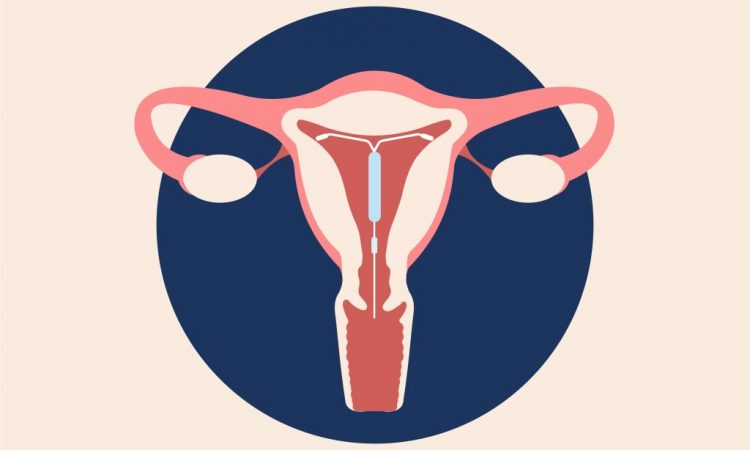When considering whether an intrauterine device (IUD) is the right birth control option for you, there are many factors to consider. Will this birth control method fit my lifestyle and expectations? How long will my birth control last? When do I want to start having kids? How do I plan for future pregnancies when I already have kids? These are all questions you may ask yourself, so it’s important to do research to ensure you’re finding the most accurate information available. “It’s really important to get the facts about each birth control option, including IUDs, because there are a lot of myths out there,” says Dr. Jennifer Lincoln, a board-certified OB-GYN, in Portland, Oregon, and author of Let’s Talk About Down There: An OB-GYN Answers All Your Burning Questions…Without Making You Feel Embarrassed for Asking.
Hormonal IUDs may be a birth control option for women looking for effective, long-term pregnancy prevention. LILETTA® (levonorgestrel-releasing intrauterine system) 52mg, is an intrauterine system (IUS), also known as an IUD, that is approximately 99% effective at preventing pregnancy for up to 8 years in women of childbearing age. It can be used by women who have had children and women who have never been pregnant. LILETTA slowly releases a small amount of levonorgestrel, a form of progestin hormone often used in birth control pills, into the uterus and bloodstream. The levonorgestrel in LILETTA may work by thinning the lining of the uterus, thickening cervical mucus, inhibiting sperm movement, and reducing sperm survival. It is not known exactly how these actions work together to prevent pregnancy.
Olya Hill, a LILETTA patient, paid ambassador of AbbVie, and creator behind the lifestyle brand Living Notes, says she chose LILETTA after having an open conversation with her doctor about her birth control needs. “As a professional, I travel a lot, often changing time zones,” she says. “My life and future are my choices, and choosing a reversible form of birth control, like LILETTA, that offers effective pregnancy prevention at this stage in my life, is important to me.” For more information on LILETTA, ask your doctor or visit Liletta.com. Individual experiences may vary.
Of course, not every birth control method is appropriate for every woman, so it’s important to speak with a healthcare provider to find out if you are a candidate. LILETTA should not be used in certain women, including women who are pregnant; have a pelvic infection (such as endometritis or pelvic inflammatory disease), untreated genital infection, certain cancers, unexplained vaginal bleeding, fibroids that distort the uterine cavity, or short-term liver disease; get infections easily; or are allergic to any of LILETTA’s ingredients. Please see additional Important Risk Information for LILETTA below.
If you’re on the fence about trying an IUD, know that IUDs are a common birth control method among women of reproductive age, mostly because of how well they work. “Less than 1 in 100 people relying on an IUD for birth control will get pregnant during 12 months of use. In short, it’s among the most effective methods we have for contraception,” says Dr. Lincoln. Below, read more about the breakdown of what you can expect with an IUD and why it’s helpful to seek advice from a healthcare provider when making decisions related to contraception.
It’s important to make sure you eat, even if it’s something small, before your IUD insertion appointment. You’ll also want to get tested for any sexually transmitted infections (STIs) before your insertion, as bacteria can be pushed up in your uterus and cause a serious infection.
You may experience pain, bleeding, or dizziness during and after IUD placement. The pain can be worse for some. If the symptoms do not stop within 30 minutes after placement, your healthcare provider will examine you to see if the IUD needs to be removed or replaced. In some cases, the IUD may not have been placed correctly or it may have perforated or been expelled. If you think you could use some support, ask someone to come with you to the appointment so you don’t have to drive or go home alone. It’s also important to note that every woman is different and one person’s insertion experience may differ from another’s. LILETTA.com offers an overview of the insertion process.
Many people feel fine right after they get an IUD, while others need to take it easy for a while. There can be some cramping and backaches, so it’s suggested that you rest at home after your appointment. Your healthcare provider will also explain how you can check the threads, once a month, to make sure your IUD is still in the proper position. LILETTA.com offers guidance on how to check if your IUD is still in place, but your doctor may schedule a follow-up appointment 4 to 6 weeks after placement to check for themselves if it is in the right position. However, follow-up plans may vary from patient to patient.
Many birth control methods, like the IUD, do not protect against HIV infection (AIDS) and other sexually transmitted infections. However, correct and consistent use of the male latex condom is highly effective in reducing STD transmission.
No matter what you decide, Dr. Lincoln suggests making sure you’re making a well-informed decision based on a reliable source. “Misinformation runs rampant on social media when it comes to birth control, which leaves many potential users scared of a method that may have worked great for them,” says Dr. Lincoln. “Discuss your goals and what’s most important to you with your provider so you can see what contraception methods might be best for you.”
This article was created by SheKnows for AbbVie.
US-LLT-230047
Source: Read Full Article

